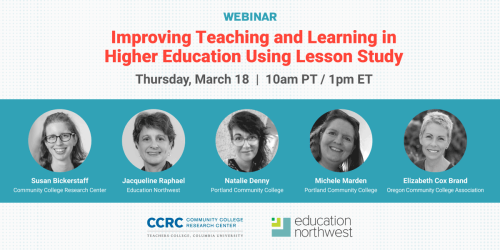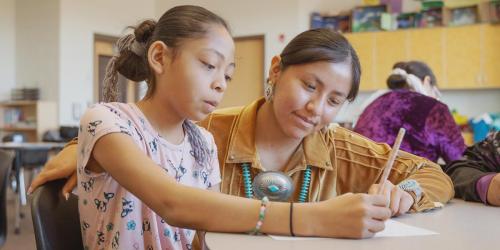Archived Webinar: Learn how an Introduction to Computational Thinking course is influencing the academic achievement of high school students across Louisiana.
The report describes strategies to build better systems to support high school alternatives that empower young people to transform their lives and build momentum for their future.
Lesson Study is a structured, collaborative professional development intervention with evidence showing that it improves mathematics instruction among K-12 teachers.
This webinar introduced lesson study, showcased new implementation resources, and reviewed research findings from the project.
Poor writing skills are a barrier to hiring and promotion for many individuals, and remediation of problems with writing imposes significant operational and training costs on public and private organizations.
A well-designed virtual conference can be just as engaging and useful—or lackluster and uninspiring— as an in-person event. Here are some quick tips that can help you up your game immediately.
To help achieve Oregon’s high school and postsecondary education completion goals, the state has been expanding its investment in accelerated learning options that give students the opportunity to earn college credit.
To gather information about the field of out-of-school time science, technology, engineering, and math (OST STEM), Education Northwest recently conducted a national scan of OST STEM programs for the Overdeck Family Foundation
Quality tutoring programs center equity, uplift student voice, involve families, equip staff and volunteers with essential skills, and use data to evaluate success. Check out these eight research-based principles to make your tutoring program more effective.
We're are collaborating with the CCRC to adapt a pilot project at three community colleges in Oregon to test the usefulness of the lesson study professional development model in higher education.
According to the 2015 National Assessment of Educational Progress, two-thirds of eighth-grade students performed at or below a basic level of proficiency in mathematics.
This classic 1989 brief from researchers Kathleen Cotton and Karen Reed Wikelund remains widely cited and circulated more than 20 years after original publication.
This classic brief looks at the research on activities pursued by teachers to keep track of student learning for purposes of making instructional decisions and providing student feedback.
Placing students into small groups can be a powerful approach to stimulate learning. This resource serves educators looking to improve classroom instruction through small-group student learning.
This classic research synthesis by Researcher Kathleen Cotton cites classroom, school, and district practices that research has shown to foster positive student achievement, attitudes and social behavior.















